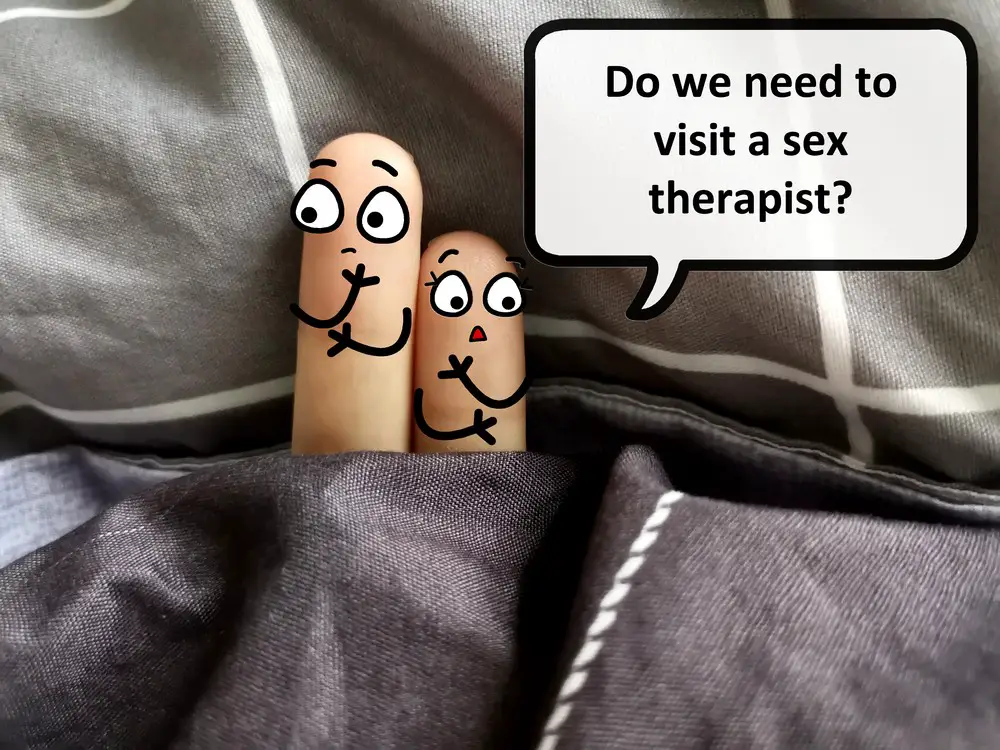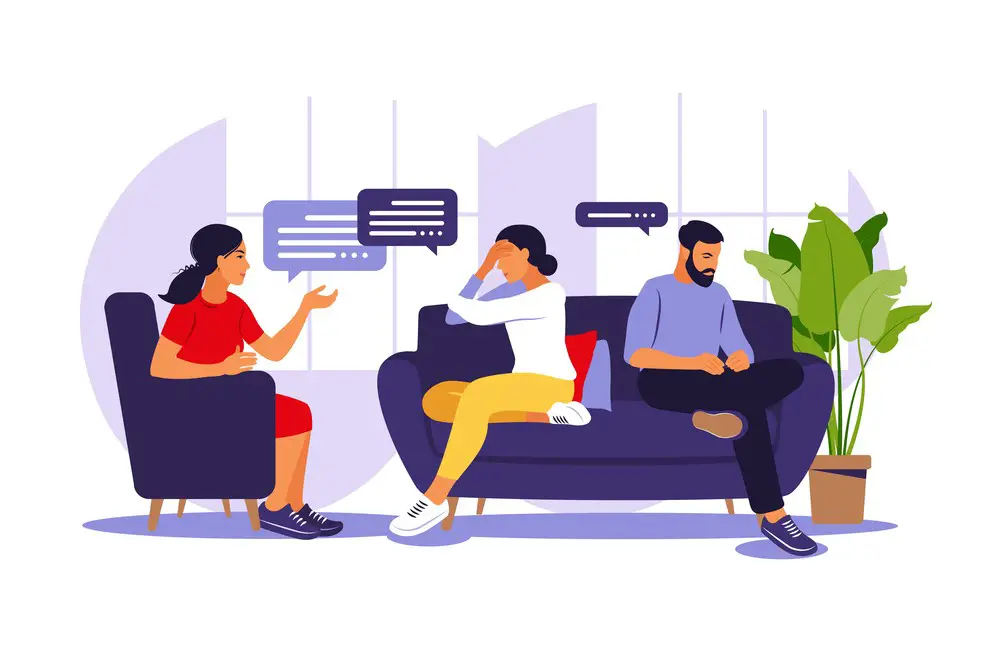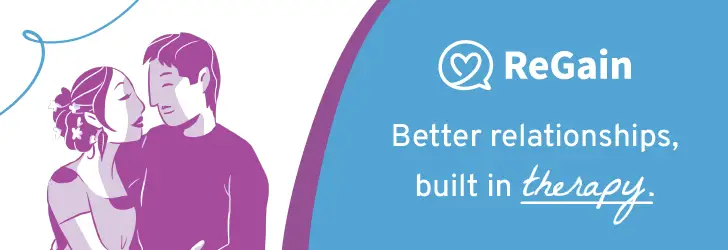Couples therapy can be a powerful tool for couples facing relationship challenges. In Austin, Texas, a wide range of professional couples therapists are available to help individuals and couples navigate difficult transitions, improve communication, and strengthen their bonds. Whether you’re facing a relationship crisis, seeking to address long-standing issues, or simply wanting to enhance your connection with your partner, couples therapy can provide the support and guidance you need.
Understanding the unique challenges that couples face, therapists in Austin specialize in various therapeutic approaches designed to meet the diverse needs of their clients. With an emphasis on creating a safe, supportive, and non-judgmental environment, these therapists work with couples to identify and address the underlying issues contributing to their difficulties. Austin couples therapists can guide you and your partner in developing effective communication skills, fostering emotional intimacy, and rekindling the love and passion that may have dwindled over time.
Key Takeaways
- Couples therapy in Austin is valuable for addressing relationship challenges and fostering growth.
- Therapists in Austin offer a variety of approaches to meet the diverse needs of couples, including improving communication and reigniting passion.
- Finding the right therapist that aligns with your needs and supports your journey toward a stronger relationship is essential.

Understanding Couples Therapy
Couples therapy is a supportive process designed to help partners in a relationship communicate better, resolve conflicts, and deepen their connection. If you and your partner are facing challenges, seeking professional help through couples therapy can be a powerful tool to strengthen and revitalize your bond.
In Austin, Texas, various therapists and counseling centers specialize in couples therapy and marriage counseling. These professionals are well-equipped to work with a diverse range of relationship issues and provide practical, evidence-based strategies to help improve your relationship’s dynamics.
During couples therapy sessions, you can expect your therapist to create a safe, non-judgmental space for both partners to share their thoughts and emotions openly. The therapist often guides the conversation, encouraging you and your partner to express your needs and identify the patterns that may keep you stuck.
To make the most out of your couples therapy experience, consider these friendly tips:
- Be Open and Honest: Share your feelings and thoughts with your therapist and partner. Transparency is crucial in facilitating progress and growth in your relationship.
- Practice Active Listening: Pay attention and be present when your partner speaks. Show that you care about their feelings and perspectives by acknowledging their needs and feelings.
- Stay Committed to the Process: Change takes time and effort. Remain committed to the therapy process; over time, you’ll start seeing improvements.
Throughout couples therapy, you and your partner will learn new ways of communicating and relating to each other. These enhanced skills will foster a stronger connection in your relationship, helping you work through conflicts together with understanding and cooperation and leading to a healthier, happier partnership.

Why Couples Choose Therapy
Couples often choose therapy for a variety of reasons. Whether you’re facing relationship issues, stress, conflict, or even considering divorce, a skilled therapist can help you navigate these complex challenges. Therapy can be highly beneficial for couples dealing with these common issues:
Relationship issues: Sometimes, couples find themselves stuck in negative communication patterns, struggling with compatibility, or experiencing frequent arguments. In therapy, you can find new methods of communication, understand each other’s needs better, and repair emotional wounds.
Stress: External factors such as demanding careers, financial worries, or family issues can strain relationships significantly. Therapy provides a supportive environment for couples to unravel these stress factors and develop coping strategies together.
Conflict resolution: Disagreements about parenting, finances, or lifestyle choices can sometimes seem unresolvable. A professional therapist can teach you effective conflict resolution techniques, enabling both partners to find workable solutions together.
Marital issues: Couples might hit rough patches throughout their marriage. A therapist can help identify and address foundational issues and offer guidance on improving your connection. Therapy can also create a safe space for open, honest conversations about expectations and personal needs.
Divorce and separation: If a couple is considering parting ways, therapy is an excellent way to explore the emotional aspects of this decision. Therapists can help you evaluate your relationship objectively and support you in navigating through the logistical challenges of separation.
Infidelity: Betrayal within a relationship is one of the most challenging experiences. Therapy can allow for constructive discussions about the causes and consequences and help both partners determine the best action for healing and rebuilding trust.
Remember, you don’t need to face these challenges alone. Seeking therapy is a brave step towards a healthier, more fulfilling relationship. Give yourself and your partner the chance to grow and thrive together by seeking the help of a skilled professional in Austin, TX.

Benefits of Couples Therapy
Couples therapy can provide numerous benefits for you and your partner, helping to strengthen your relationship in various aspects. Here are some of the key advantages couples therapy can offer:
- Improved communication: Through therapy, you and your partner can learn how to express your thoughts and feelings effectively, fostering better understanding and minimizing misunderstandings.
- Enhanced emotional connection: Couples therapy can help you reconnect with your partner emotionally, bringing you closer together and increasing feelings of love and satisfaction in your relationship.
- Greater intimacy: By discussing and addressing any issues related to sex, couples therapy can improve your physical connection with your partner, leading to a deeper level of intimacy and satisfaction.
- Better problem-solving skills: In therapy, you can gain valuable tools and insights that help you and your partner navigate and resolve conflicts more effectively, ultimately leading to a happier and more stable union.
- Increased self-awareness: Couples therapy can help you better understand your own emotions, needs, and reactions within the relationship, giving you the tools necessary to grow as an individual and maintain a healthy partnership.
In short, couples therapy in Austin can help you and your partner work through challenges and improve various aspects of your relationship, such as communication, emotional connection, physical intimacy, and conflict resolution. By participating in couples therapy, you are investing in your relationship’s long-term health and happiness.
Types of Therapy Available
Gottman Method
The Gottman Method is a popular approach to couples therapy that helps you and your partner enhance your communication skills, emotional connection, and conflict resolution techniques. This method is based on the research of Dr. John Gottman, who identified the crucial factors contributing to a healthy relationship.
Some key takeaways of the Gottman Method include:
- Developing a deep understanding of each other’s needs and desires
- Learning how to express appreciation and be responsive to your partner
- Practicing mindfulness in your interactions to create a more harmonious relationship
EMDR Therapy
Eye Movement Desensitization and Reprocessing (EMDR) Therapy is an innovative psychotherapy technique for couples dealing with trauma or distressing experiences. EMDR therapy stimulates both sides of the brain to help you process traumatic memories and alleviate emotional distress.
In EMDR Therapy, you and your partner can work on resolving issues such as:
- Past traumas that may be affecting your current relationship
- Anxiety or fear that hinders intimacy
- Developing a sense of safety and trust within the relationship

Sex Therapy
Sex Therapy is a practical behavioral approach to help couples improve their sexual intimacy and communication. This therapy focuses on addressing various challenges surrounding the sexual aspect of your relationship, such as performance anxiety, desire discrepancies, and sexual dysfunction.
Some benefits of Sex Therapy include:
- Enhancing your understanding of each other’s sexual needs and desires
- Developing strategies for overcoming sexual difficulties
- Increasing emotional intimacy and sexual satisfaction in your relationship
Addiction and Substance Use Counseling
If you or your partner struggle with addiction or substance use, Addiction, and Substance Use Counseling can provide valuable support and resources for managing these challenges within the context of your relationship. This type of therapy addresses the underlying issues contributing to addiction while helping couples learn how to navigate the recovery process together.
In Addiction and Substance Use Counseling, you can expect to:
- Gain insight into the root causes of addiction
- Learn healthy coping mechanisms and relapse prevention strategies
- Strengthen your relationship by building trust and fostering open communication

Choosing The Right Therapist
Finding the right therapist for couples therapy in Austin can be challenging, but it’s essential to improving your relationship. You need to find a professional who is licensed and experienced and aligns with your values and goals.
First, consider therapists with specific credentials. Licensed Professional Counselors (LPC) and Marriage and Family Therapists (MFT) specialize in relationship issues. These therapists have undergone extensive training in dealing with couples and can help you navigate life’s challenges together.
Next, please pay attention to their expertise in particular therapeutic approaches. Some counselors may specialize in a specific method, such as Emotionally Focused Couples Therapy (EFT) or the Gottman Method. Make sure to research these approaches and determine whether they are a good fit for your needs.
Don’t hesitate to ask for recommendations from friends, family, or other professionals in the mental health field. Word-of-mouth is a reliable way to find a trustworthy, effective therapist. Some therapists offer free consultations, allowing you to ask questions and gauge your comfort level with them.
Once you have narrowed down your options, consider:
- Availability: Does the therapist have openings that fit your schedule? Finding a time that works for you and your partner for consistent therapy sessions.
- Location: Since ongoing sessions are typical, find a therapist in Austin who is easily accessible to both partners, minimizing travel time and inconvenience.
- Financial considerations: Do they accept your insurance or offer a sliding fee scale? Ensure the cost of therapy aligns with your budget so you can focus on your relationship without added financial stress.
Remember to trust your instincts. The right therapist for you is someone with whom you feel comfortable, understood, and supported in your journey toward healing and growth.
 Move beyond pain and confusion together.
Move beyond pain and confusion together.
Services and Appointments
Austin, TX, offers various couples therapy services to support you and your partner as you work through relationship challenges. Finding the right therapist and booking appointments is easier than ever, thanks to online platforms like Zocdoc.
Booking appointments: To schedule an appointment, visit websites like Zocdoc, where you can browse a list of top therapists specializing in couples counseling in Austin. Check for providers with great reviews, such as Chandler Richard LMFTA. You can book your appointment online, and the process is simple, secure, and free.
Counseling centers: You can find relationship counseling centers in Austin besides individual therapists. For example, the Relationship Counseling Center of Austin (RCC Austin) provides affordable counseling services for couples, individuals, families, and even teen counseling.
Thriveworks: For couples who need help with specific issues like fighting, apathy, or differing opinions on important matters like raising children, holiday planning, or finances, Thriveworks provides couple therapy services in Austin. You can find a provider by calling (513) 790-5614 or visiting the location details on their website.
The Center for Relationships: This center offers couples a more comprehensive approach, focusing on inspiring love in all aspects of life. The Center for Relationships creates an inclusive and transformative environment to guide individuals on self-discovery, personal growth, and relationship improvement.
Remember to prioritize your relationship’s needs while choosing a couples therapy service in Austin, and consider factors like location, reputation, and treatment approaches to ensure you and your partner have a positive counseling experience.
Payment and Insurance
When looking into couples therapy in Austin, it’s essential to consider the payment and insurance options available to you. Many providers offer various options to ensure you receive the support you need without breaking the bank.
One typical payment option is a sliding scale. This means that the cost of therapy varies depending on your household size and family income. For example, Austin Counseling Specialists offer sliding scale payment options for those who cannot afford standard rates. This approach makes therapy more accessible for couples in different financial situations.
In addition to sliding scale options, some practitioners offer upfront pricing or bundled discounts. For instance, Austin Counseling Specialists charge $150 for a 60-minute session and $225 for a 90-minute session. They also provide bundled discounts, which can help reduce the overall cost of therapy.
Regarding insurance, it’s crucial to check with your provider about coverage for couples therapy. Your health insurance or employee benefit plan may cover services entirely or partially. For example, Deep Roots Counseling in Austin notes that their therapist, Pam is an “out-of-network provider” for insurance. Always contact your insurance company to verify your coverage before beginning therapy.
Lastly, don’t forget to consider the various payment methods available. Many therapists in Austin accept credit cards, debit cards, cash, HSA/HRA/FSA cards, and checks for their services. Enteave Counseling in Austin requires all clients to provide a credit or debit card, regardless of their chosen payment method.
In conclusion, many payment and insurance options are available to couples seeking therapy in Austin. Be sure to explore sliding scale options, insurance coverage, and various payment methods to find the best fit for your financial situation.

Coping with Life Transitions and Chronic Issues
Life transitions can be challenging, whether a new job, moving to a new city, or starting a family. On top of that, chronic illnesses can add extra stress to your life. Couples can benefit from therapy in Austin when dealing with these challenges.
Healing experiences are an essential part of the therapeutic process. When you go to a couples therapist, they will help you and your partner explore and share your emotions, thoughts, and needs in a safe environment. A skilled therapist can teach you how to communicate more effectively and guide you in identifying patterns contributing to your challenges.
Coping skills can make all the difference in managing life transitions and chronic illnesses. A therapist can help you and your partner develop healthy coping strategies, such as:
- Mindfulness and meditation
- Emotional regulation techniques
- Setting boundaries and prioritizing self-care
- Effective problem-solving and decision-making
- Goal-setting and creating actionable plans
When dealing with chronic illnesses, it’s crucial to have a support system in place. Sharing the burden with your partner can make your journey feel more manageable. A qualified therapist in Austin can help you navigate the complexities of chronic illness, such as:
- Addressing the emotional impacts on your relationship
- Developing empathy and understanding for your partner’s experience
- Balancing independence and the need for support
- Creating a flexible, adaptive, and resilient relationship
Remember, managing your mental and emotional health is essential when coping with life transitions and chronic issues. So, don’t hesitate to seek guidance from a couples therapist in Austin when needed – you and your partner deserve the support.

Family Dynamics and Couples Therapy
Couples therapy in Austin can be essential in addressing family dynamics, especially when children, marital, and premarital issues are involved. It aims to improve communication, understanding, and resolving conflicts within the family unit. Let’s explore how couples therapy can help address these various aspects of family dynamics.
Children and Family Dynamics
Children often heavily influence the family dynamic, and couples therapy can be an invaluable resource in helping parents communicate better and understand the emotional needs of their children. Furthermore, it can guide effective parenting strategies, building a stronger family foundation and reducing conflicts.
Marital and Premarital Counseling
Couples therapy can also be beneficial in both marital and premarital contexts. In premarital counseling, therapists will help couples identify potential areas of conflict, communication issues, and relationship expectations, setting a solid foundation for a successful marriage. On the other hand, marital counseling focuses on strengthening the bond between partners, addressing common issues like communication breakdowns, trust, and intimacy concerns. Consequently, it can support couples in navigating through both the ups and downs of married life more effectively and healthily.
Dealing with Family Conflicts
Most families experience conflicts at some point, so couples therapy emphasizes equipping individuals with the tools and strategies for handling disagreements and rebuilding trust. As part of therapy, couples learn effective communication techniques, conflict resolution skills, and how to set healthy boundaries within their relationships.
To summarize, couples therapy in Austin provides a safe space to address family dynamics, children, marital and premarital challenges, and family conflicts. By working with a skilled therapist, you and your partner can develop better communication, understanding, and conflict-resolution skills that will ultimately strengthen your family unit and pave the way for healthier relationships.

Love’s Lifeline: The Guide to Couples Therapy
Navigating the intricacies of a relationship is akin to sailing a ship; sometimes, the waters are calm, but storms can quickly brew, leaving you feeling tossed and lost. Couples therapy can be your compass when it’s time to drop anchor and reorient yourselves.
Love Hiccups or Red Flags
You and your partner are humans—fallible and complex. So, how do you discern between typical relationship woes and deeper issues that may require therapy?
- Constant Conflict: The arguments never end, and neither side feels heard.
- Communication Breakdown: A lack of honest dialogue, or worse, giving each other the silent treatment.
- Lack of Intimacy: Not just sexual; emotional closeness takes a hit, too.
- Trust Issues: Whether from infidelity or other betrayals, the foundation feels shaky.
- Avoiding Each Other: If you’d rather be anywhere than together, it’s a sign.
Tip: Be proactive. The earlier you address issues, the more manageable they usually are.
Charting the Course: Setting Goals
Once you’ve decided to seek therapy, it’s crucial to have goals—these act as your North Star throughout the process.
- Identify Core Issues: Name the elephants in the room.
- Be Transparent: No hidden agendas; honesty is critical.
- Future Vision: What would your dream relationship look like?
- Practical Milestones: Identify actionable steps to make progress.
Tip: Goals can evolve, and that’s okay. Just keep each other in the loop.
Regular Checkpoints: Monitoring Progress
Tracking improvement helps you stay motivated and realize when a change in approach is needed.
- Decreased Tension: Do conversations feel easier now?
- Quality Time: Are you enjoying each other’s company again?
- Conflict Resolution: Can you now disagree without detonating?
- Emotional Availability: Are both partners opening up more?
Tip: After each session, note your feelings and behaviors—it will help you gain perspective on your journey.
A Duo or Solo Act: Who Should Go
Should both of you sit on that comfy therapy couch, or would it be more beneficial for just one to go?
- Joint Issues: If the issues lie within the dynamics of the relationship, attending together usually makes sense.
- Personal Barriers: If one partner’s issues significantly affect the relationship, solo sessions may be needed initially.
How to be Each Other’s Pillars: Support 101
- Be Open: Talk about what you learned during sessions.
- Be Respectful: This is a vulnerable time; carefully handle each other’s emotions.
- Be Accountable: Own up to your actions and commit to making changes.
- Celebrate Wins: No matter how small, progress is progress.
Navigating a relationship isn’t always smooth sailing, but with mutual effort and therapy guidance, you can find your way back to tranquil waters. ????????
Frequently Asked Questions
What are the average costs of couples therapy in Austin?
The cost of couples therapy in Austin varies based on factors such as the therapist’s experience, session length, and the location of their practice. Typically, you can expect to pay between $100 to $250 per session. Some therapists offer sliding scale fees based on your income, so don’t hesitate to inquire about their payment options.
What is the effectiveness of couples therapy?
Couples therapy is an effective method of improving relationship satisfaction and communication for many couples. Research indicates that approximately 70% of couples report improved their relationship after attending couples therapy. However, the success of therapy depends on factors such as the willingness of both partners to participate actively and the therapist’s skill.
What types of therapists are suitable for couples?
Finding a therapist specializing in couples or marriage counseling is essential when seeking therapy for your relationship. These professionals have the skills and expertise to address couples’ unique challenges. Some typical qualifications to look for include:
- Licensed Marriage and Family Therapists (LMFT)
- Licensed Professional Counselors (LPC) with experience in couples counseling
- Psychologists with specialization in relationship issues
Do online couples therapy options exist in Austin?
Yes, online couples therapy options are available in Austin. Many therapists offer teletherapy or video conferencing as an alternative to in-person appointments. This can be particularly convenient for couples with busy schedules or those who prefer the comfort of their own homes.
Is there Christian marriage counseling available in Austin?
Christian marriage counseling is available in Austin for couples seeking a faith-based approach to their therapy. Some therapists specialize in incorporating Christian principles and values into their counseling sessions. Consider the therapist’s background, approach, and experience in Christian marriage counseling when considering this option.
What is the difference between couples therapy and couples counseling?
The terms couples therapy and couples counseling are often used interchangeably. Both involve working with a trained professional to address relationship issues, improve communication, and foster a more profound understanding between partners. Some practitioners may favor the term “couples therapy” to emphasize the therapeutic nature of their work, while others may prefer “couples counseling” to emphasize the guidance and support they provide. Regardless of the terminology, the focus remains on helping couples achieve their relationship goals.
About Jacob Maslow
After surviving the traumatizing events of 9/11, I took it upon myself to heal through helping others. I’m the primary caregiver of my children and understand from first-hand experience the lonely paths you have to walk as a partner and parent when leaving an unhealthy relationship.
We’re all echoing in a dark space that doesn’t have to be this empty, and that’s been my mission since finding solace and recovery in therapy: To help comfort others who are still in shock and at the prime of their struggle.
I came across BetterHelp after searching for this type of community. I wanted to belong to a body of proactive therapists and supportive therapy veterans that allowed me to see other sides of the story.
It was unconventional, and that’s what attracted me most. During my most challenging times, when my ex-wife completely cut me off from my children, I found comfort and clarity through BetterHelp.
Instead of being chained to a strict therapist recommendation, I was in charge of who I felt understood my struggle most. That allowed me to find my true peace, as I was reunited with those who read behind my words and had first-hand experience with my trauma.
Recovery is a choice; with BetterHelp, that choice will be a few clicks away. You can join their couples-oriented platform, Regain.us, for those stuck with family estrangement and toxic relationship patterns.
- Stress Relieving Benefits of Spending Time in a Garden: Interesting Facts to Know - February 16, 2024
- How to Reduce Anxiety Immediately: Quick and Effective Techniques - February 15, 2024
- Can Stress Cause Bloating? Understanding The Link Between Stress And Digestive Issues - February 15, 2024
This site contains affiliate links to products. We will receive a commission for purchases made through these links.





